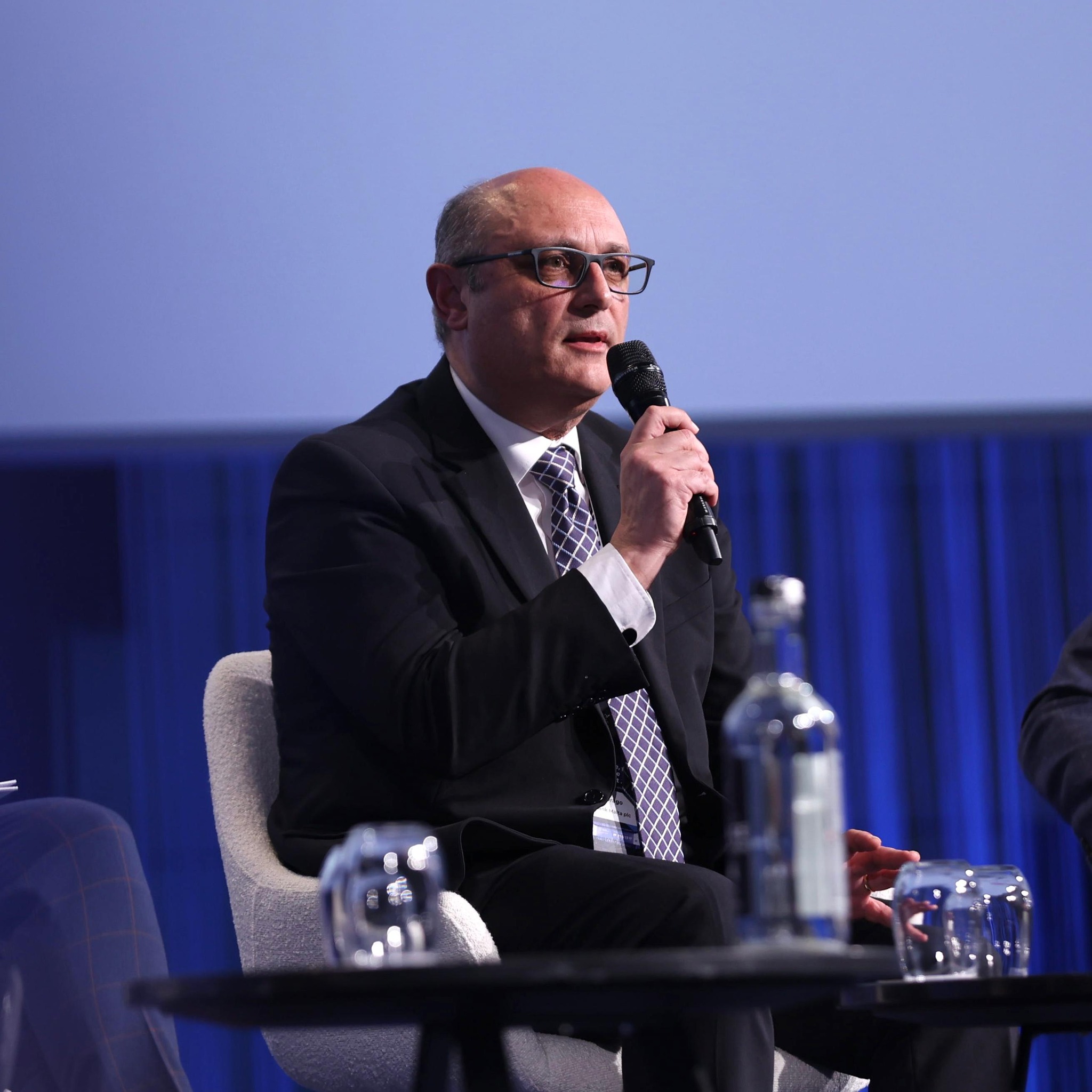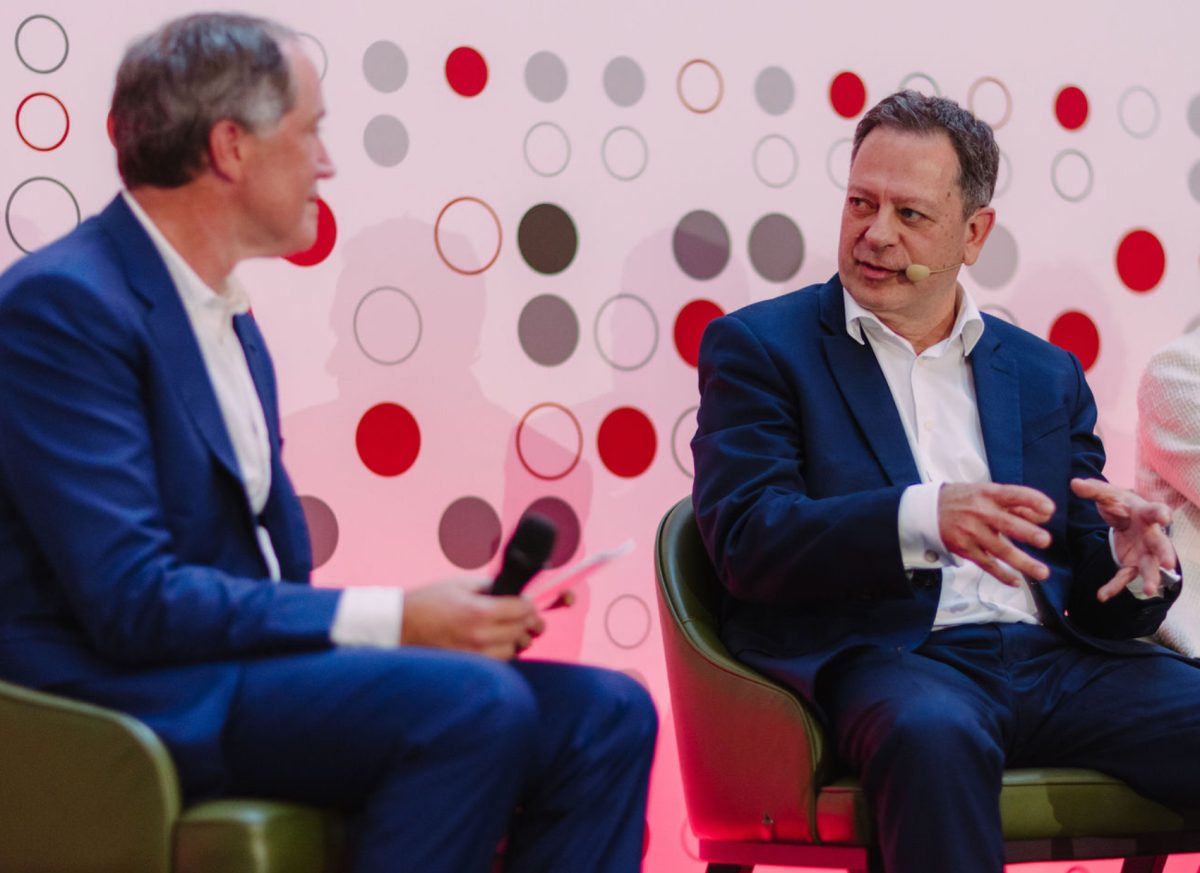Maltese telecoms giant Melita’s acquisition by the world’s second largest investment bank, Goldman Sachs, values the business at around €750 million.
The figure was first quoted by Bloomberg, which cited people familiar with the matter.
Now, MaltaCEOs.mt can confirm that the price is “substantially correct,” according to sources close to Melita.
The confirmation came as this newsroom was organising an exclusive sit-down interview with Melita CEO Harald Roesch, who has led the firm since 2016, being appointed shortly after its acquisition by Apax Partners France and Fortino Capital.
He remained at the helm after Melita again changed hands in 2019, being acquired by EQT AB’s Infrastructure Fund, oversaw its development in the five years since, and is now experiencing yet another company transfer.
“Our investors usually call us the Swiss clock,” he says when asked about Melita’s attraction to a changing roll-call of private equity firms and investment banks. “We improve and grow every year. We do not make huge steps but we reliably grow our revenues and profitability, and that is very important for an infrastructure investor. The stability of the business is important. I would say that is the main attraction.”
Mr Roesch describes the Goldman Sachs Alternatives team as “very highly motivated, positive and skilled,” while acknowledging that the “requirements” that come with being the second-largest investment bank in the world, based in the US, are different to those of EQT, a pure private equity player.
Given the regulatory approvals required from the Malta Communications Authority, the Broadcasting Authority and also the recently set up National Foreign Direct Investment Screening Office, the Melita CEO takes a cautious approach to any estimated timeline, noting it is “difficult to say” exactly how long the transaction process will last.
“It will take at least three months, though,” he adds.
As to whether Melita’s customers and stakeholders can expect some changes once the new ownership steps in, Mr Roesch says that “Goldman Sachs backs our strategy.”
He notes that Melita does not require much financing: “We can finance ourselves, so we do not need additional funding to carry out our investment plans – which are significant.”
Nor is a corporate shake-up being expected, he continues.
“What we expect is that by being part of the Goldman Sachs ecosystem, we should see some doors being opened, new potential synergies, that would likely be especially favourable to our international business.”
That would be is Melita’s Internet of Things (IoT) business, which was launched shortly after its acquisition by EQT in 2019. This business is largely focused on foreign markets, where it provides the connectivity solutions required to power IoT applications like smart sensors for agriculture, manufacturing and smart city functions like waste management and flood control.
Presumably, this was a major attraction for Goldman Sachs Alternatives?
“We have built an IoT business that is still rather small, with around €5 million in revenue this year,” says Mr Roesch. “However, it should be substantially more next year, with its turnover doubling every year for some time now.”
He adds: “It’s a business that is addressing the European, if not global, market for IoT. We have proven that it works. So yes, this piece of the business is valuable, especially going forward.”
However, he is quick to dismiss any implication that the IoT division is the real prize for Goldman Sachs, pointing out that the domestic business has grown very steadily, notwithstanding heavy competition.
Mr Roesch spoke at length of EQT’s “transformational” ownership of Melita: “EQT Infrastructure is an infrastructure fund, so during these last years we have strengthened our infrastructure significantly. We were the first company in Europe to have a nation-wide gigabit network – that’s why Malta is number one in ultra-broadband coverage in Europe. This followed the extension of our 5G mobile coverage across the islands.”
Major investment was also poured into increasing network redundancy to limit outages caused by unforeseen events.
“With all the construction going on, you simply cannot avoid having your cables cut every now and then. It happens. What we have done is invested heavily to limit the damage when that happens.”
He mentions a situation that occurred the day prior to the interview, when an undersea cable between Malta and Gozo was damaged: “A few years ago, that would have meant that Gozo would be out of service for a few hours. Now, nobody even noticed. That’s why our investments in redundancy matter.”
The CEO also takes personal pride in the level of customer service the company has attained under his leadership, citing customer feedback analyses that consistently place Melita’s customer care among the best in the country.
“We are now in a situation where we answer calls, on average, in just 30 seconds – that’s even better than the target we set ourselves for the year.”
Part of this, he continues, can be attributed to the improvements in service provision and processes, meaning that fewer people need to get on the phone. Another piece of the puzzle is the development of a chatbot built on ChatGPT-maker OpenAI’s model, which was further improved by a small in-house team and welcomed by Melita’s customers.
“Anybody can put a chatbot on their webpage,” he says. “But if the chatbot doesn’t help, then it doesn’t count. It is better to wait a few minutes for real help, than to get an immediate answer that’s useless.”
With the interview coming to a close, MaltaCEOs.mt asked how the transaction came about. Was EQT looking for a potential buyer? Was Goldman Sachs Alternatives looking for a particular fit for its holdings?
“There was never an official process to sell Melita, so it was never announced that Melita is on sale. There were no bidders invited to bid,” says Mr Roesch.
“So this contact came in a different way. Clearly, Goldman Sachs Alternatives was looking for companies with a certain profile, they were made aware of our existence, and they liked it. But it was not a race between several parties, it was just a negotiation between Goldman Sachs and EQT.
“That certain profile includes steady returns as an infrastructure company, the increasing potential for global growth and potential for synergies with other businesses in the Goldman Sachs ecosystem.”
Mark Drago named Chief Operating Officer at HSBC Malta
Mr Drago is taking over from Svetlana Maslova, bringing over 38 years of banking experience.
Kyte Global supports companies in achieving DORA and MiCA compliance following their release
With new EU regulations on digital resilience and crypto-assets set to take effect in 2025, Kyte Global is supporting organisations ...
Corinthia Group Managing Director and CEO recognised with international award
Simon Naudi was awarded the Exceptional Contribution CEO Award from Global Hotel Alliance.
Alexander Fenech takes on strategy role at Brown’s as Tiziana Ceci named CEO
The pharmacy chain also announced the addition of two independent directors to its board.








